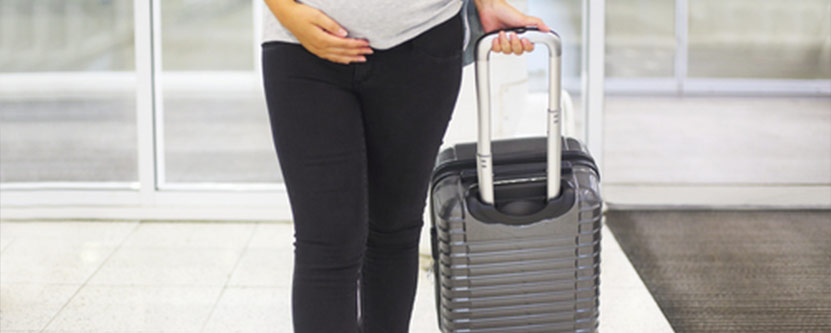How safe is traveling in pregnancy? Generally traveling is safe when you are pregnant. Universal precautions include that avoid strenuous
[the_ad id=”6114″]
work, do things slowly rather than running around and take rest in between, wear loose-fitting clothes, drink plenty of fluids, walk and stretch at regular intervals. Always carry your pregnancy hospital notes, memorize your due dates, carry sanitary napkins, over-the-counter medications like pain-killers, anti-vomiting medicines, and your prescribed medicines. If going on a holiday abroad, always buy travel insurance, and take the vaccines that are recommended.
AIR TRAVEL
As long as you and your baby are fine, air travel is safe till 36 weeks of pregnancy. All airlines will allow travel till 28 weeks of pregnancy, and many allow till 34-36 weeks. Hence if you are in the last third of your pregnancy, enquire from the airlines before booking tickets. Air travel is not recommended after 36 weeks. It is recommended also to not travel by air in certain conditions like pre-eclampsia, if you are carrying more than 1 fetus (twin or triplet pregnancy), or if you are in labor. Traveling to areas in the world where Zika virus outbreaks have been reported is not recommended if you are pregnant.
Inside the airplane, move out of your seat once every 30 mins and walk down the aisle. Choose an aisle seat for yourself as this will help you straighten your legs and move in and out easily. Always wear the seat belt. Drink plenty of fluids.
TRAIN TRAVEL
This is considered safe till 36 weeks. The universal precautions mentioned above would apply while traveling by train. Choose the lower berth for you instead of the middle or upper berth in the sleeper coaches. While traveling by local commuter trains within the city, try and avoid the super-rush hours where you may need to stand for long and the train is jam-packed with commuters. Claim the dependent seats for yourself.
CAR TRAVEL
Wear your seat belt WITHOUT FAIL, even if you are in the back seat. Buckle the belt over your hip bones under your belly. The upper shoulder strap should go above your belly through the center of the chest (in between your breasts). If you are on a long drive, take frequent stops where you are able to get out of the car and are able to stretch your legs and move around a bit. Again, keep hydrated.
TRAVELING BY MOTORCYCLE/SCOOTER (Riding Pillion)
Not an ideal mode of transport when you are pregnant. But sometimes it may be inevitable, especially in a country like India. Make sure you sit with legs on each side of the seat as in case of a jerk or bump, you are less likely to fall. Avoid wearing a sari and do not take any chunni/dupatta. Keep away your chunni or dupatta in your bag as they may get coiled up in the wheel and in case of fall can cause strangulation. Drive slowly and avoid potholes as much as safely possible. Glide over bumps and speed breakers gently. Follow traffic rules while riding. Give appropriate indicators before each turn. Avoid speeding. Avoid zigzag trespassing.
TRAVELING BY AUTORICKSAW / TOTO
These are common modes of public transport in India. These usually do not have any seat belt or any safety features. Also, the drivers are quite reckless and indulge in speeding. Hence best is to avoid, but again availing these may be inevitable. In that case, the safest thing is to inform the driver that you are pregnant and hence to drive gently and safely following traffic rules.
Source:

